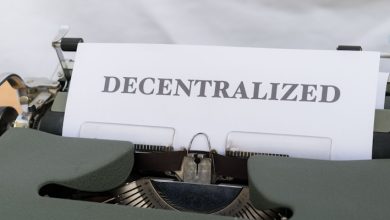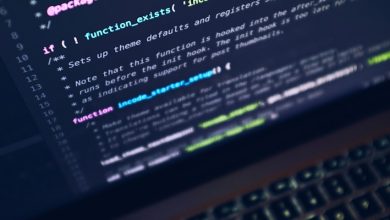The Impact of NFTs on Decentralized Gaming

- Introduction to NFTs and decentralized gaming
- Exploring the intersection of NFTs and gaming
- The evolving landscape of decentralized gaming with NFT integration
- Benefits and challenges of using NFTs in the gaming industry
- Case studies of successful NFT implementation in decentralized gaming
- Future trends and opportunities in NFT-powered decentralized gaming
Introduction to NFTs and decentralized gaming
Non-fungible tokens (NFTs) have revolutionized the world of decentralized gaming, offering a new way for players to truly own their in-game assets. NFTs are unique digital tokens that represent ownership of a specific item or piece of content on the blockchain. Unlike traditional gaming assets, which are owned and controlled by game developers, NFTs give players full ownership and control over their virtual belongings.
Decentralized gaming platforms leverage NFTs to create a more immersive and engaging gaming experience. Players can buy, sell, and trade NFTs on open marketplaces, allowing them to monetize their gaming achievements and invest in rare and valuable in-game assets. This has opened up new opportunities for gamers to earn real-world income by participating in decentralized gaming ecosystems.
Furthermore, NFTs enable interoperability between different games and platforms, allowing players to use their assets across multiple games. This cross-compatibility enhances the overall gaming experience and creates a more dynamic and interconnected gaming environment. By leveraging blockchain technology and NFTs, decentralized gaming is pushing the boundaries of what is possible in the gaming industry.
Exploring the intersection of NFTs and gaming
The intersection of NFTs and gaming has become a hot topic in the world of decentralized gaming. Non-fungible tokens, or NFTs, are unique digital assets that are stored on a blockchain. These tokens have the potential to revolutionize the gaming industry by allowing players to truly own their in-game assets.
One of the most exciting aspects of NFTs in gaming is the ability for players to buy, sell, and trade their digital assets with other players. This creates a new level of player agency and ownership that has never been seen before in the gaming world. Players can truly own their in-game items, and even potentially make a profit by selling them to other players.
NFTs also have the potential to change the way in-game economies work. By creating a decentralized marketplace for in-game assets, players can have more control over the value of their items. This could lead to more stable and balanced in-game economies, as well as new opportunities for players to earn real-world income through gaming.
Overall, the intersection of NFTs and gaming is an exciting development that has the potential to revolutionize the gaming industry. By giving players true ownership of their in-game assets and creating new opportunities for earning income, NFTs are changing the way we think about gaming.
The evolving landscape of decentralized gaming with NFT integration
The landscape of decentralized gaming is continuously evolving with the integration of Non-Fungible Tokens (NFTs). NFTs have revolutionized the gaming industry by providing players with true ownership of in-game assets, allowing them to buy, sell, and trade virtual items with ease. This integration has opened up new opportunities for gamers to monetize their gaming experience and participate in the growing NFT market.
Decentralized gaming platforms are leveraging NFT technology to create unique gaming experiences that offer players a level of customization and personalization never seen before. By tokenizing in-game assets as NFTs, players can truly own their digital items and transfer them across different games and platforms. This interoperability has the potential to reshape the gaming landscape and create a more immersive and engaging gaming environment.
Moreover, the use of NFTs in decentralized gaming has also introduced new ways for developers to engage with their communities and reward loyal players. Game developers can create limited edition NFTs as rewards for completing in-game challenges or participating in special events, fostering a sense of exclusivity and scarcity among players. This not only incentivizes player engagement but also adds a new layer of value to the gaming experience.
Benefits and challenges of using NFTs in the gaming industry
One of the main benefits of incorporating Non-Fungible Tokens (NFTs) in the gaming industry is the potential to provide players with true ownership of in-game assets. This means that players can buy, sell, and trade their NFTs outside of the game environment, allowing them to truly invest in their gaming experience. Additionally, NFTs can add a new layer of rarity and uniqueness to in-game items, making them more valuable and desirable to players.
However, the gaming industry also faces several challenges when it comes to implementing NFTs. One of the main concerns is the environmental impact of NFTs, as they are often built on blockchain technology that requires a significant amount of energy to operate. Additionally, there are concerns about the potential for scams and fraud in the NFT space, as the market is still relatively unregulated and prone to manipulation.
Despite these challenges, many gaming companies are exploring the possibilities of NFTs and how they can enhance the gaming experience for players. By carefully considering the benefits and challenges of using NFTs in the gaming industry, developers can create innovative and engaging gaming experiences that leverage the unique properties of blockchain technology.
Case studies of successful NFT implementation in decentralized gaming
One successful example of implementing Non-Fungible Tokens (NFTs) in decentralized gaming is the popular game “Axie Infinity.” Axie Infinity utilizes NFTs to represent in-game assets such as characters, items, and land. These NFTs are unique and owned by the players, allowing for true ownership and the ability to trade or sell them on various marketplaces.
Another case study is the game “Decentraland,” a virtual world built on the Ethereum blockchain. In Decentraland, players can buy virtual land parcels represented by NFTs. These land parcels can be used to create, monetize, and interact with various decentralized applications within the game. The ownership of these NFTs gives players full control over their virtual assets.
Additionally, the game “CryptoKitties” gained significant attention for its innovative use of NFTs. In CryptoKitties, players can collect, breed, and trade digital cats, each represented by a unique NFT. The rarity and traits of these NFTs determine their value, creating a dynamic marketplace for players to engage with.
Overall, these case studies demonstrate the potential of NFTs in decentralized gaming to revolutionize ownership, trading, and gameplay experiences. By leveraging blockchain technology and NFTs, developers can create new opportunities for players to engage with games in a decentralized and secure manner.
Future trends and opportunities in NFT-powered decentralized gaming
The future of decentralized gaming powered by NFTs is brimming with exciting trends and opportunities. As the popularity of NFTs continues to soar, the gaming industry is poised to leverage this technology to create unique gaming experiences for players. One of the key trends that we can expect to see in the coming years is the integration of NFTs into in-game assets, allowing players to truly own and trade their digital items.
Moreover, NFTs are set to revolutionize the way in which games are monetized, with developers exploring new revenue streams such as selling limited edition NFTs or offering exclusive in-game content through NFTs. This opens up a world of possibilities for both developers and players, creating a more dynamic and engaging gaming ecosystem.
Another exciting trend on the horizon is the gamification of NFT ownership, where players can earn NFTs through gameplay or participate in NFT-based competitions. This not only adds an extra layer of excitement to gaming but also encourages players to engage more deeply with the game and its community.
In addition to these trends, there are also a plethora of opportunities for developers to explore in the realm of NFT-powered decentralized gaming. From creating cross-game interoperability to building decentralized autonomous organizations (DAOs) for game governance, the possibilities are endless. By embracing NFTs, developers can tap into a new and innovative way of creating, distributing, and monetizing games, ultimately leading to a more immersive and rewarding gaming experience for players.
Overall, the future of NFT-powered decentralized gaming is bright, with a wealth of trends and opportunities waiting to be explored. By harnessing the power of NFTs, developers can unlock new possibilities and create truly unique and engaging gaming experiences for players around the world.



